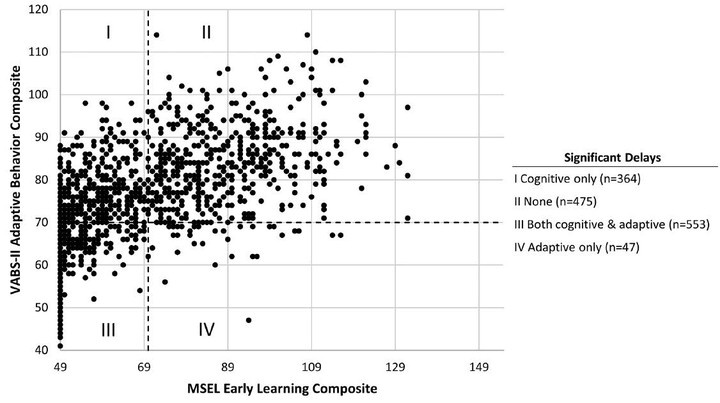Using Adaptive Behavior Scores to Convey Level of Functioning in Children with Autism Spectrum Disorder: Evidence from the Study to Explore Early Development

Abstract
We examined relationships between measures of adaptive behavior (AB), cognitive ability, and autism symptom severity in 1,458 preschool-aged children with autism from the Study to Explore Early Development. While publications commonly describe autistic children as “low-“ or “high-functioning” based on cognitive ability, relying solely on cognitive scores may obscure meaningful variation in functioning. We found significant heterogeneity in AB scores of children with cognitive scores both above and below the threshold of two or more standard deviations below the population mean specified in the diagnostic criteria for intellectual disability (ID). Although cognitive and AB scores were strongly associated in our sample, considerable variation in overall AB and more than half in socialization and motor skills was unaccounted for by cognitive ability, autism symptom severity, and other covariates. Among children who could be designated “low-functioning” based on cognitive scores, 39.7% had composite AB scores indicating no significant delays, while among those who might be designated “high-functioning,” 9.0% had significant delays in overall AB and 22.2% in socialization. These results suggest AB scores capture variations in the autism phenotype not accounted for by other measures we considered.